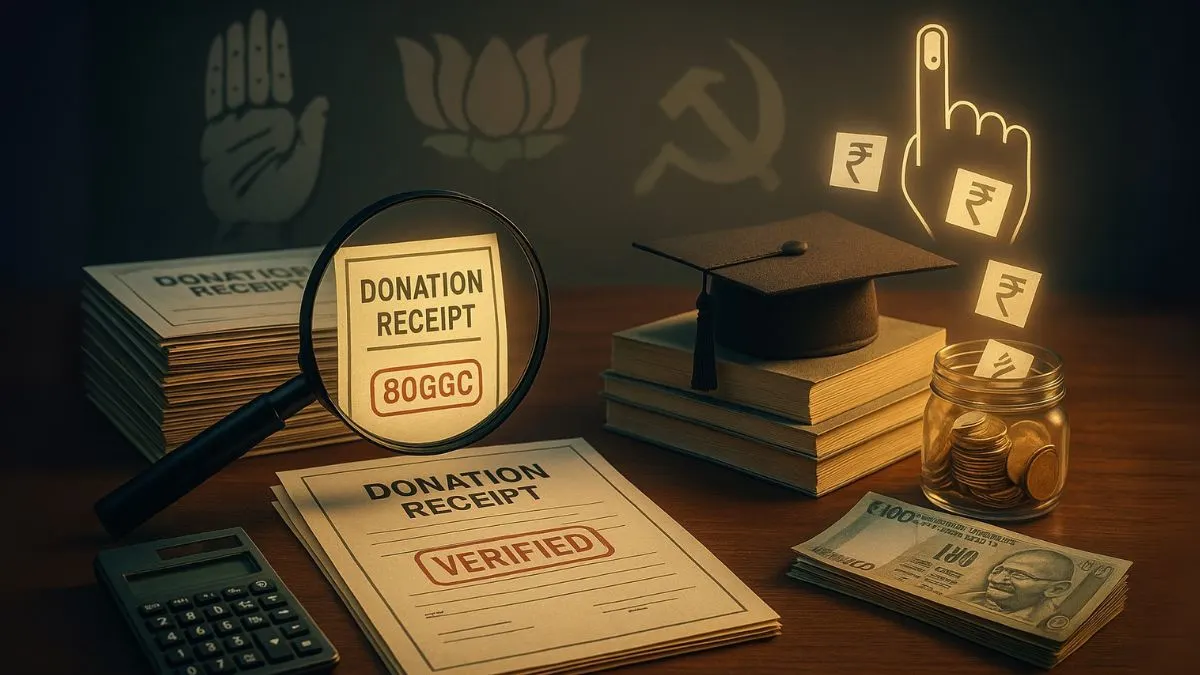
Money plays a vital role in elections and political campaigns across the world, and India is no exception. Political parties need funds to run campaigns, organize rallies, communicate with voters, and carry out their day-to-day functions. But with money comes responsibility—and that’s where the concept of a political donation and political party donation list comes into play.
The Indian government has introduced multiple laws and regulations to ensure political funding remains transparent and free from corruption. While donations are legal, they must be made through proper channels & recorded systematically. A political party donation list ensures accountability, prevents black money misuse, and informs citizens about who is funding political activities.
What is a Political Donation?
A political donation is a voluntary contribution made by individuals, companies, or organizations to political parties. These funds are used for election campaigns, voter outreach, and party operations.
Under the Representation of People Act, 1951 & the Income Tax Act, 1961, political donations are governed strictly. The idea is to provide a clean mechanism for funding, while also offering tax deductions to donors under Section 80GGC and 80GGB.
Political Party Donation List – Why It Matters
The political party donation list is not just about numbers—it represents transparency in democracy. Here’s why it matters:
- Accountability: Citizens can see where parties are receiving funds from.
- Transparency: Prevents hidden or illegal funding sources.
- Tax Compliance: Ensures donors get legitimate tax benefits.
- Fair Play: Maintains a level playing field among political parties."
- Public Awareness: Helps voters understand corporate or individual influence on parties.
Sources of Political Donations
Political parties can receive donations from:
- Individuals (citizens of India)
- Companies (excluding government companies)
- Partnership firms & associations
- Trusts or societies
Foreign contributions are prohibited unless they fall under the Foreign Contribution (Regulation) Act (FCRA).
Also Read: Tax Benefits on Political Donations
Modes of Political Donation
The law specifies that donations above ₹2,000 cannot be made in cash. Accepted modes include:
- Cheque
- Bank transfer
- Demand draft
- Electoral bonds
This ensures that all transactions are traceable and documented.
Electoral Bonds and Political Donations
In recent years, electoral bonds have become a popular method of donating to political parties. These are financial instruments issued by authorized banks, which donors can purchase & give to political parties. The party can then redeem them through its bank account.
This system was introduced to:
- Encourage transparency.
- Prevent black money usage.
- Record all large donations.
However, the scheme has also faced criticism for not disclosing donor identities to the public."
Political Party Donation List – Reporting Requirements
Every recognized political party must maintain proper books of accounts.
- Donations above ₹20,000 must be disclosed to the Election Commission of India (ECI).
- Annual audit reports must include details of contributions.
- The political party donation list is then made public for transparency.
Also Read: Tax Exemptions for Political Parties
Tax Benefits on Political Donations
Both individuals & companies can claim tax deductions:
- Section 80GGC: For individuals (not companies).
- Section 80GGB: For companies.
This means when you make a political donation, you not only contribute to democracy but also reduce your tax burden legally.
Example of Political Party Donation List
A simplified list may include:
|
Donor Type |
Amount Donated |
Mode |
Reported To ECI |
|
Individual (Mr. A) |
₹50,000 |
Bank Transfer |
Yes |
|
XYZ Pvt Ltd |
₹5,00,000 |
Electoral Bond |
Yes |
|
Society Trust |
₹1,20,000 |
Cheque |
Yes |
Such transparency builds public trust in political processes.
Challenges in Political Donations
- Lack of Complete Disclosure: Not all details are public.
- Influence of Money Power: Big donors may influence policies.
- Criticism of Electoral Bonds: While traceable by banks, they are not always transparent to voters."
- Unequal Funding: Larger parties attract more donations, creating imbalance.
Global Comparison
- USA: Donations are capped, and PACs (Political Action Committees) play a big role.
- UK: Political donations must be declared above a certain limit.
- India: Moving toward transparency with limits on cash donations & mandatory reporting.
India still has a long way to go in ensuring donations do not create undue political influence.
Also Read: Received a Notice for Political Donations? Here's What You Must Know
Conclusion
A political donation is an important part of democracy, but transparency is the key. The political party donation list acts as a safeguard, ensuring accountability & fairness in the electoral system. By regulating donations, providing tax benefits, and mandating disclosures, India aims to create a cleaner and more reliable funding structure for political activities.
💡 Want to know how political donations impact your taxes?
Our experts at Callmyca.com simplify tax benefits on political contributions & help you claim deductions legally and efficiently.











